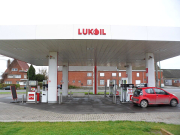
An additional £60 million of funding from the UK to NATO’s Comprehensive Assistance Package (CAP) has been announced by the Defence Secretary, bringing the UK’s total contribution to over
£80 million since February last year.
The CAP is the way that NATO’s support to Ukraine has been organised since 2016, and the funding supports a wide range of capacity-building programmes that are focused on key areas including cyber and logistics.
The package provides secure communications; combat rations, fuel, medical supplies; body armour; winter clothing and equipment to counter mines and chemical and biological threats. The UK and NATO allies continue to deliver on a shared and unwavering commitment to support Ukraine.
Defence Secretary Ben Wallace said:
The international community is working together to secure a stable Europe including our critical infrastructure, and to support Ukraine.
This new contribution for NATO’s Ukraine fund is part of our ongoing commitment to provide Ukraine with the equipment and training it needs.
The funding from the UK is in addition to the extensive and ongoing bilateral support that the UK is providing Ukraine, and initiatives such as the International Fund for Ukraine (IFU). Earlier this week, the UK announced two significant air defence support packages with allies and partners.
The £60 million contribution to the CAP was announced by the Defence Secretary at a meeting of NATO Defence Ministers in Brussels. The meeting of the 31 NATO members focused on European security and stability, and Ministers agreed to establish a new Maritime Centre for the Security of Critical Undersea Infrastructure at NATO Maritime Command in the UK. This new centre is part of a long term plan for the alliance to better secure critical undersea infrastructure.
The centre will result in better coordination between allies and with industry to share expertise, creating a NATO-wide picture of the threat and best way to tackle the challenges including best practice and innovative technologies, such as the UK’s two Multi-Role Ocean Surveillance (MROS) ships – the first of which, HMS Proteus, is due to sail shortly.
The meeting also saw Multinational Ammunition Warehousing Initiative (MAWI) partners (Belgium, Canada, Czechia, Estonia, Finland, France, Greece, Hungary, Italy, Latvia, Lithuania, Netherlands, Norway, Poland, Romania, Slovakia, Slovenia, Sweden and the UK) welcome four new nations to the project - Bulgaria, Denmark, Germany and Luxembourg.
MAWI is a NATO project that was established in 2021 to enable partners to explore opportunities for common stockpiling solutions, facilitate information sharing and develop minimum standards for ammunition warehouses. This will strengthen cooperation across allies in managing the storage of munitions and should result in lower costs and increase the availability of weapons.
The project will see a network of munition storage facilities that can host munitions in support of NATO’s multinational battle groups, including the UK-led group in Estonia.
During the NATO meeting, the Defence Secretary also reiterated the UK’s support to Sweden’s accession to the alliance, and held meetings with his counterparts from Türkiye, Canada, Greece, and Italy. He also met with Supreme Allied Commander Europe, General Cavoli, and Deputy Supreme Allied Commander Europe, General Radford.
Before the meeting began on Thursday, the Defence Secretary and Chief of the Defence Staff, Admiral Sir Tony Radakin, attended the 13th Ukraine Defence Contact Group where the delivery of hundreds more air defence missiles was announced, following an agreement between Denmark, the Netherlands, the US and the UK.
The international community is committed to providing ongoing support to Ukraine - including equipment and training. Photo by DOD photo by U.S. Air Force Master Sgt. Jerry Morrison, Wikimedia commons.









































